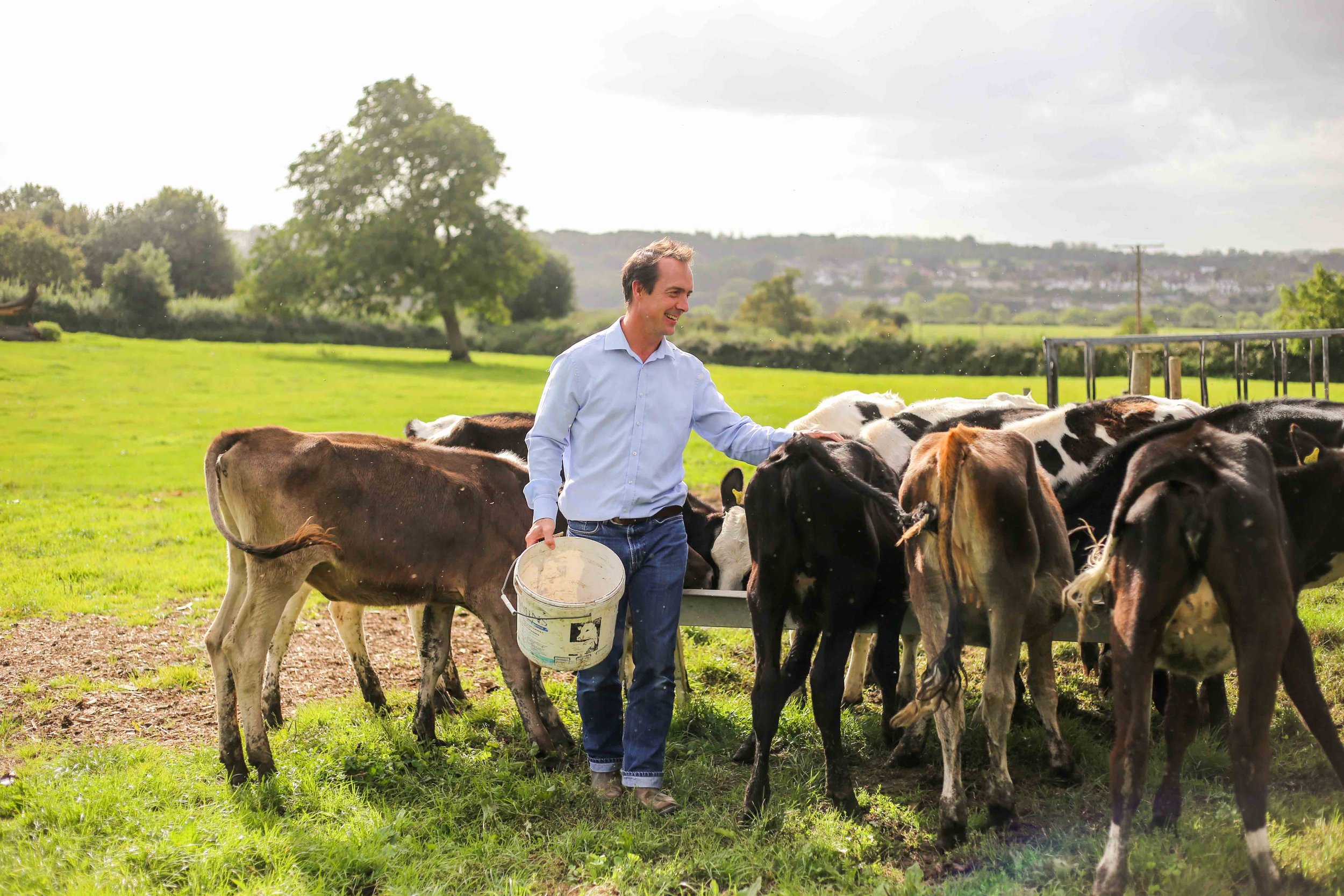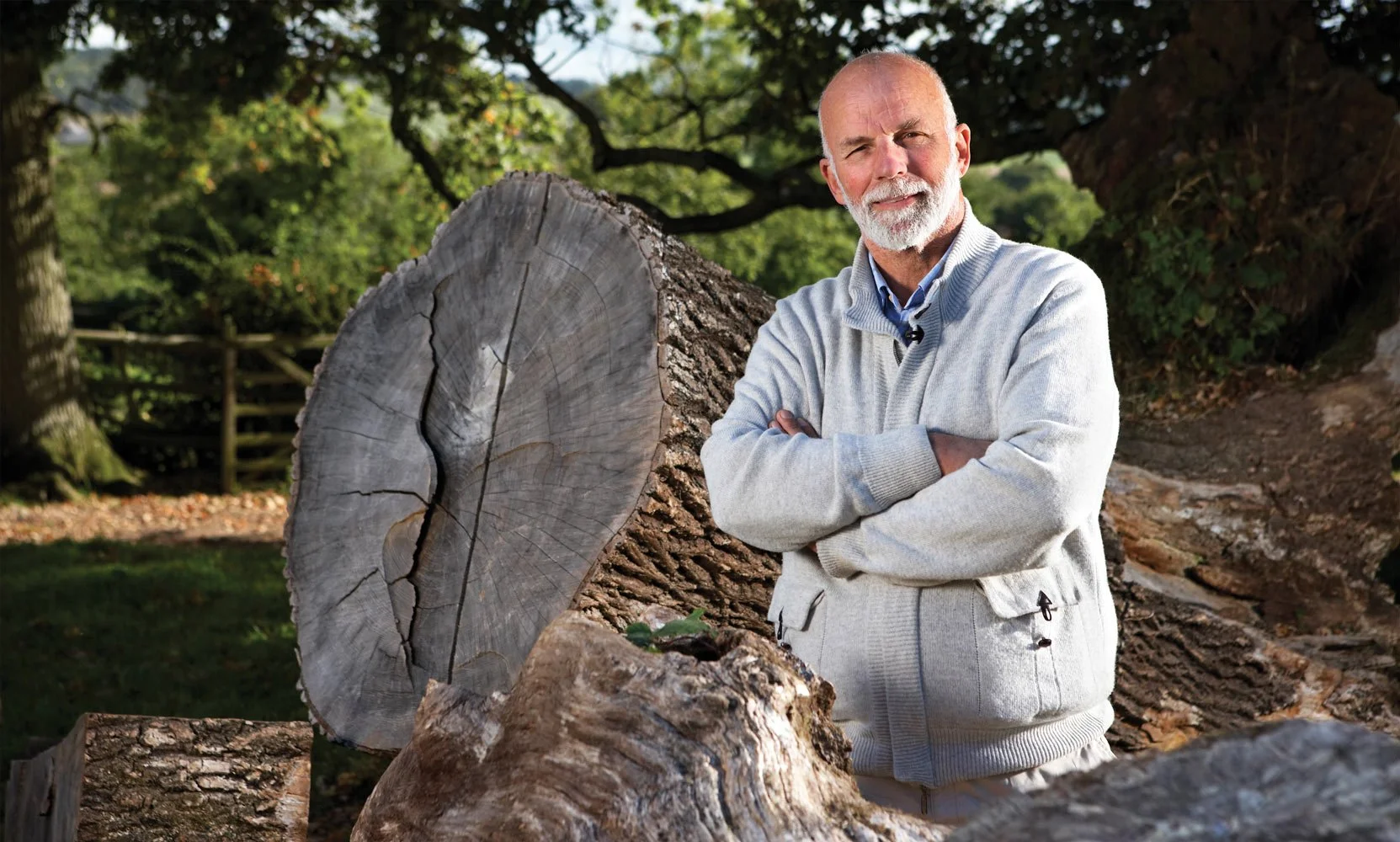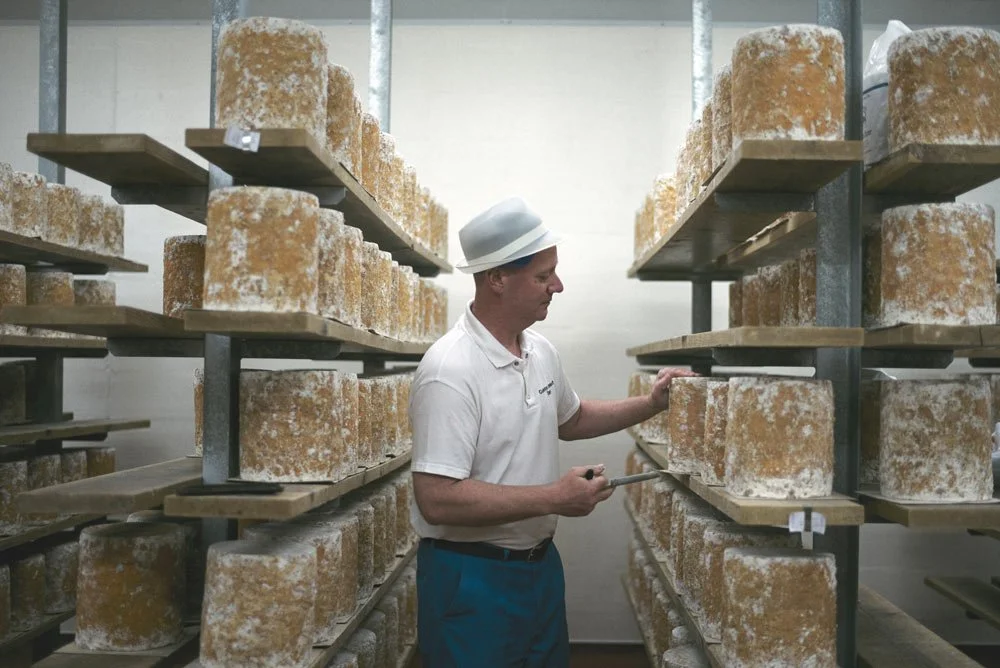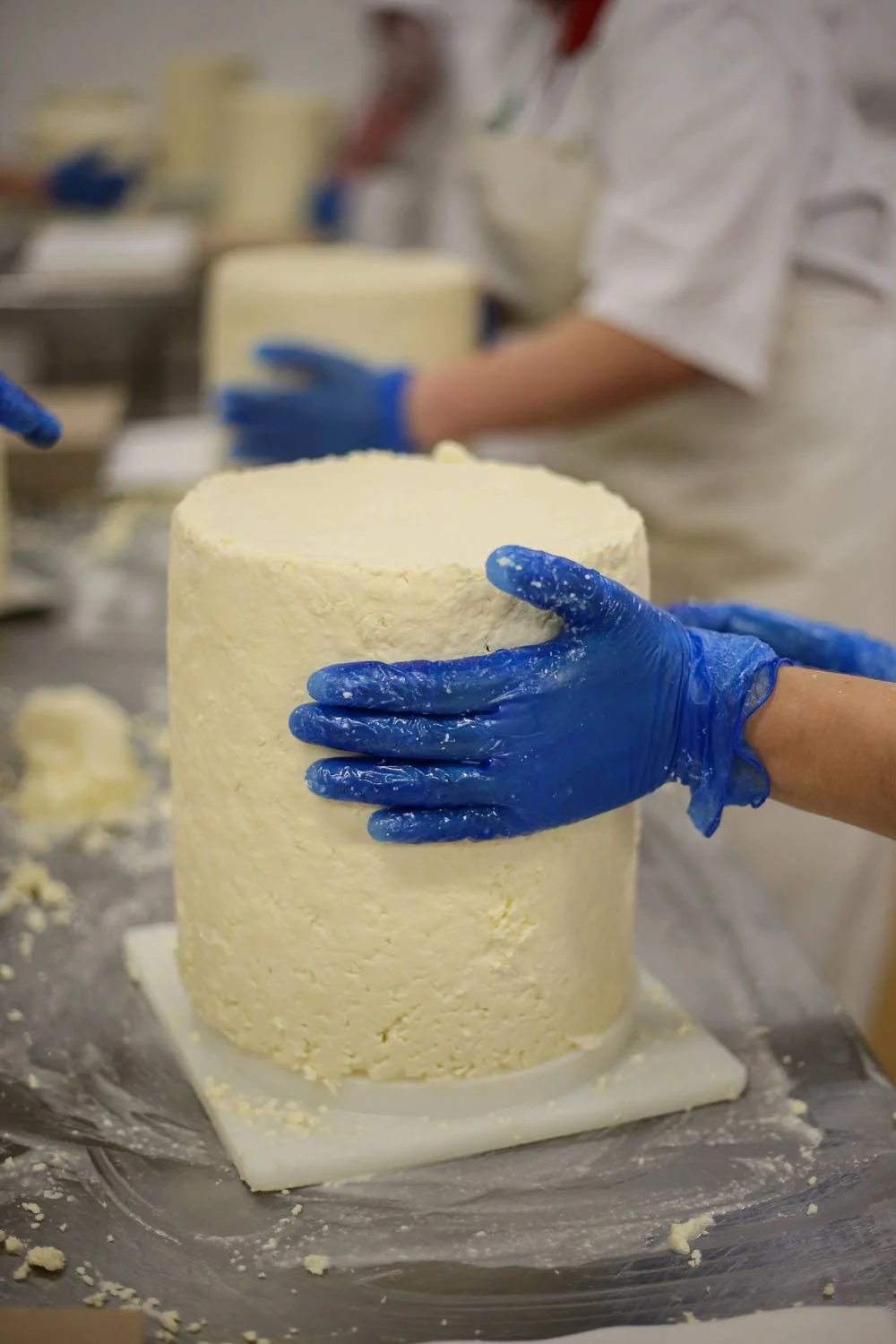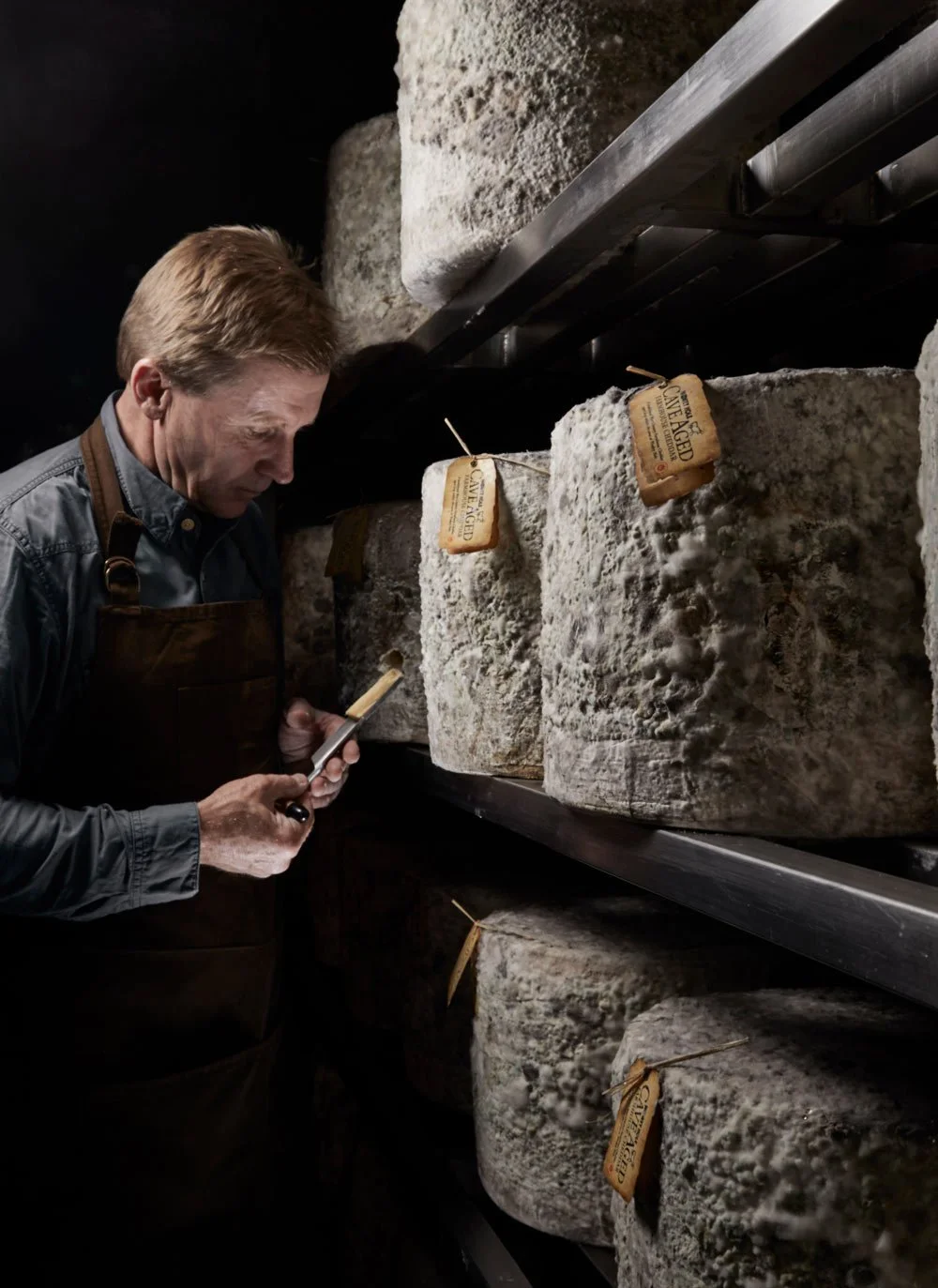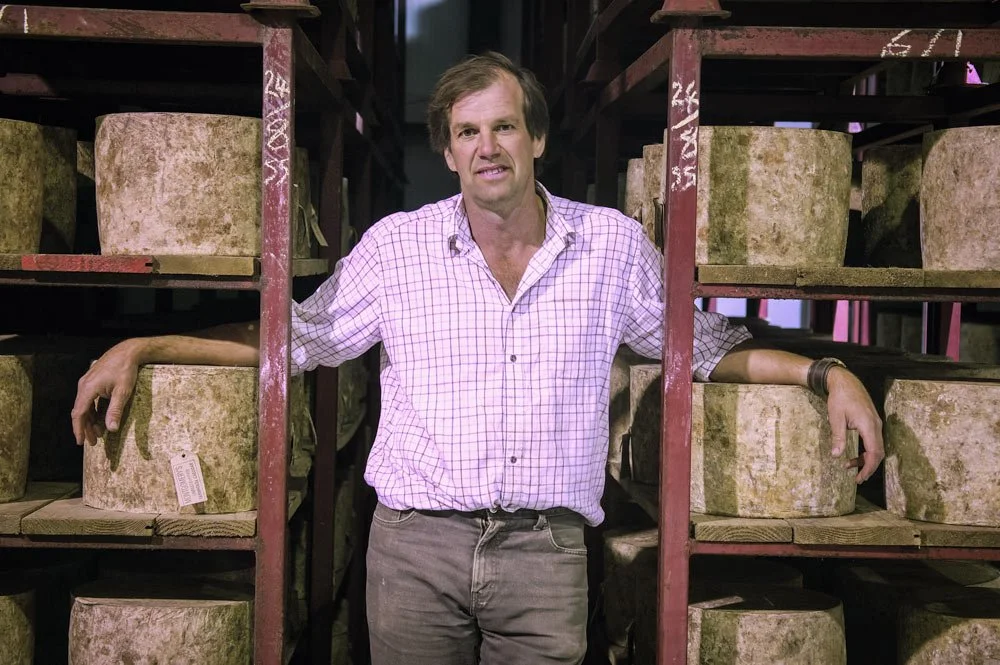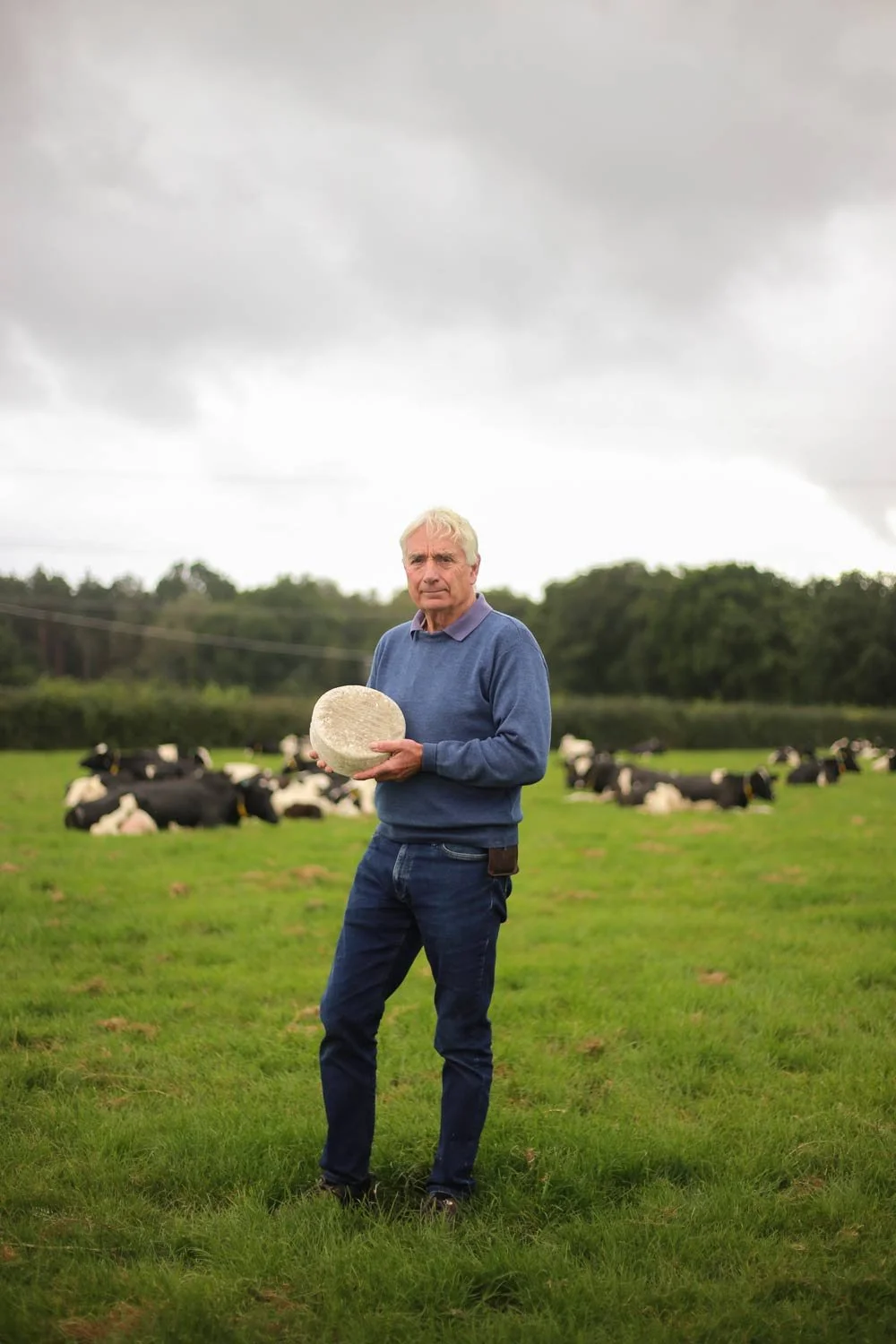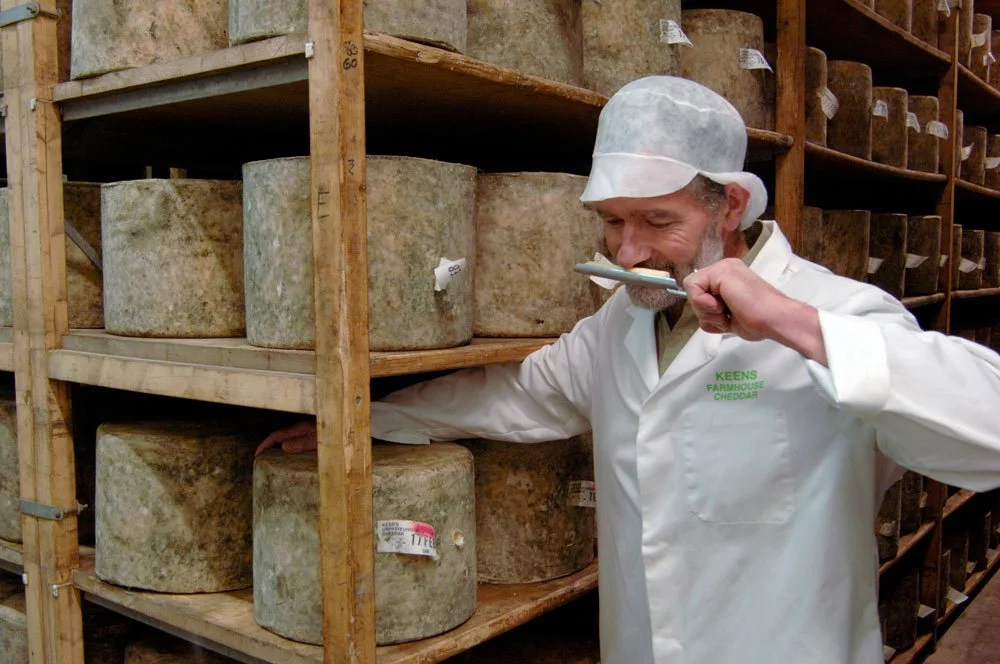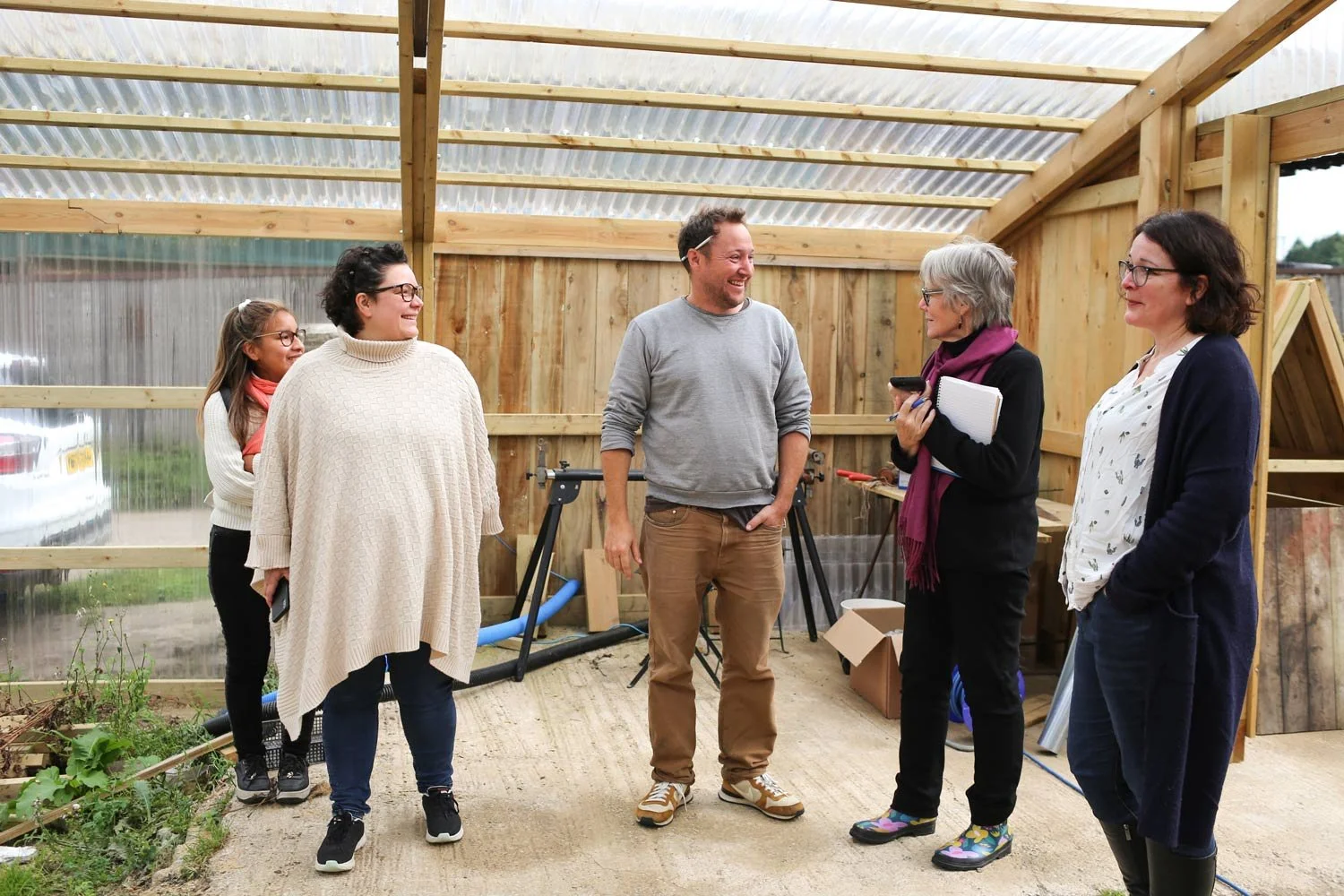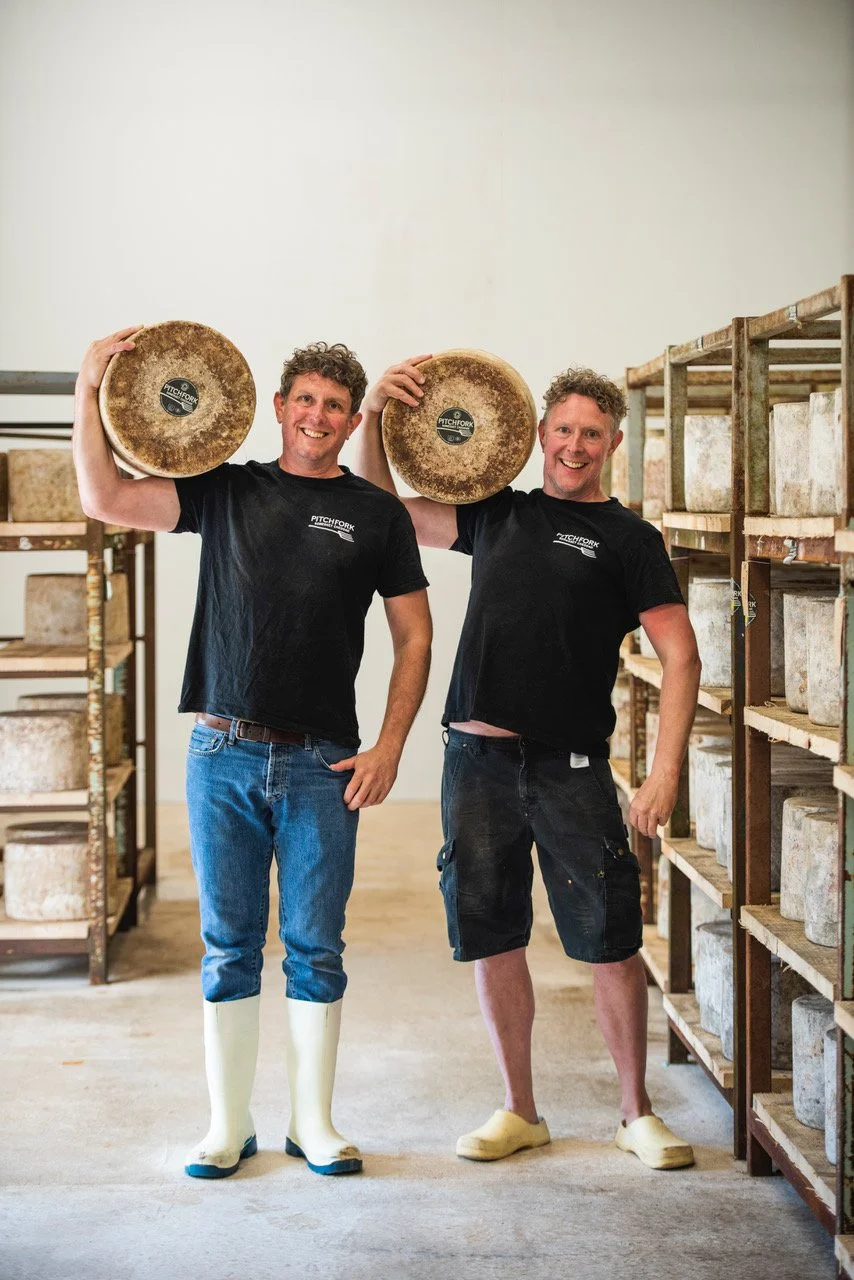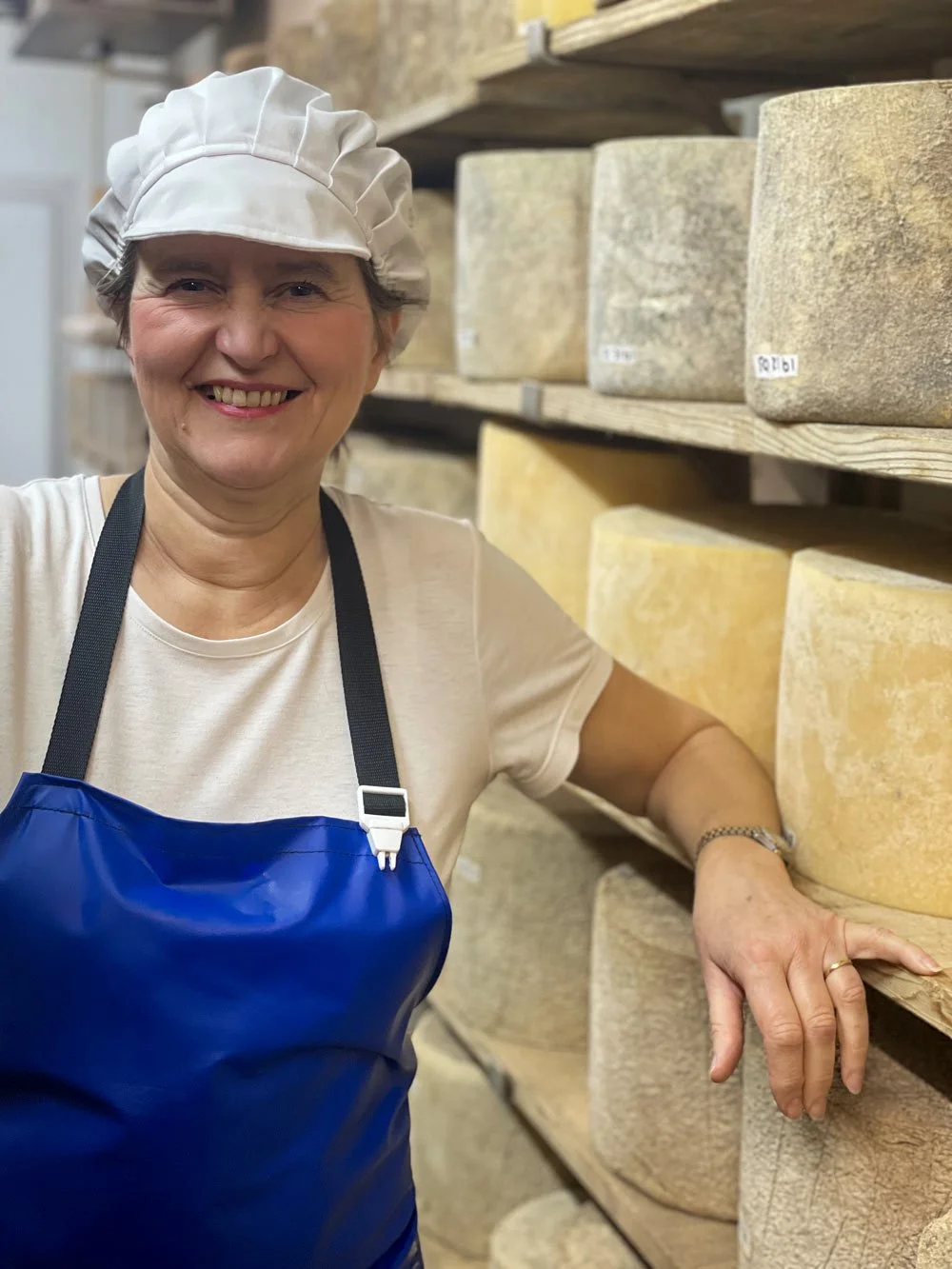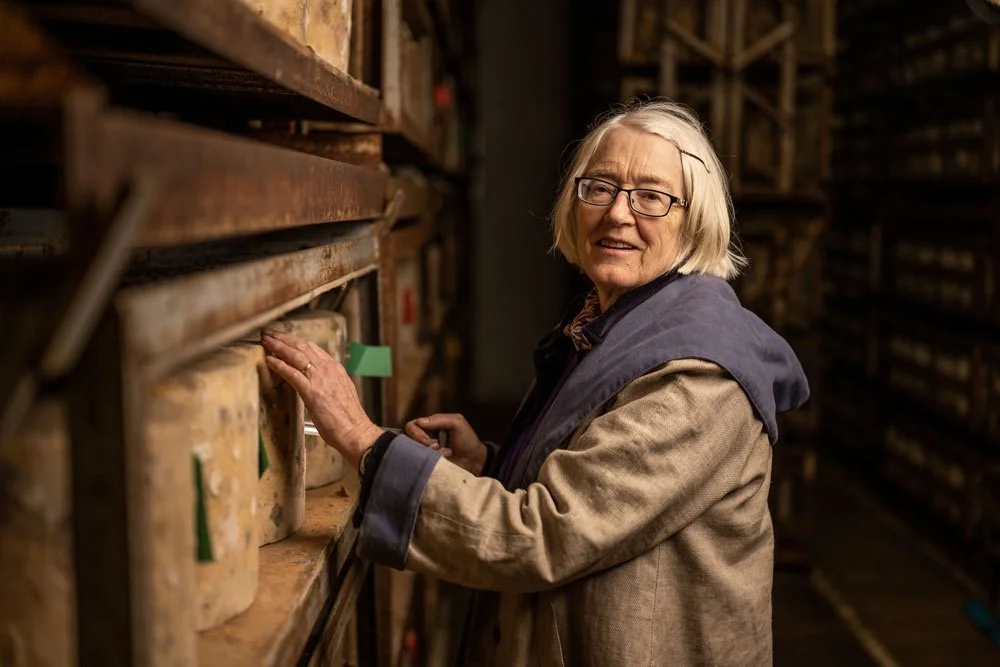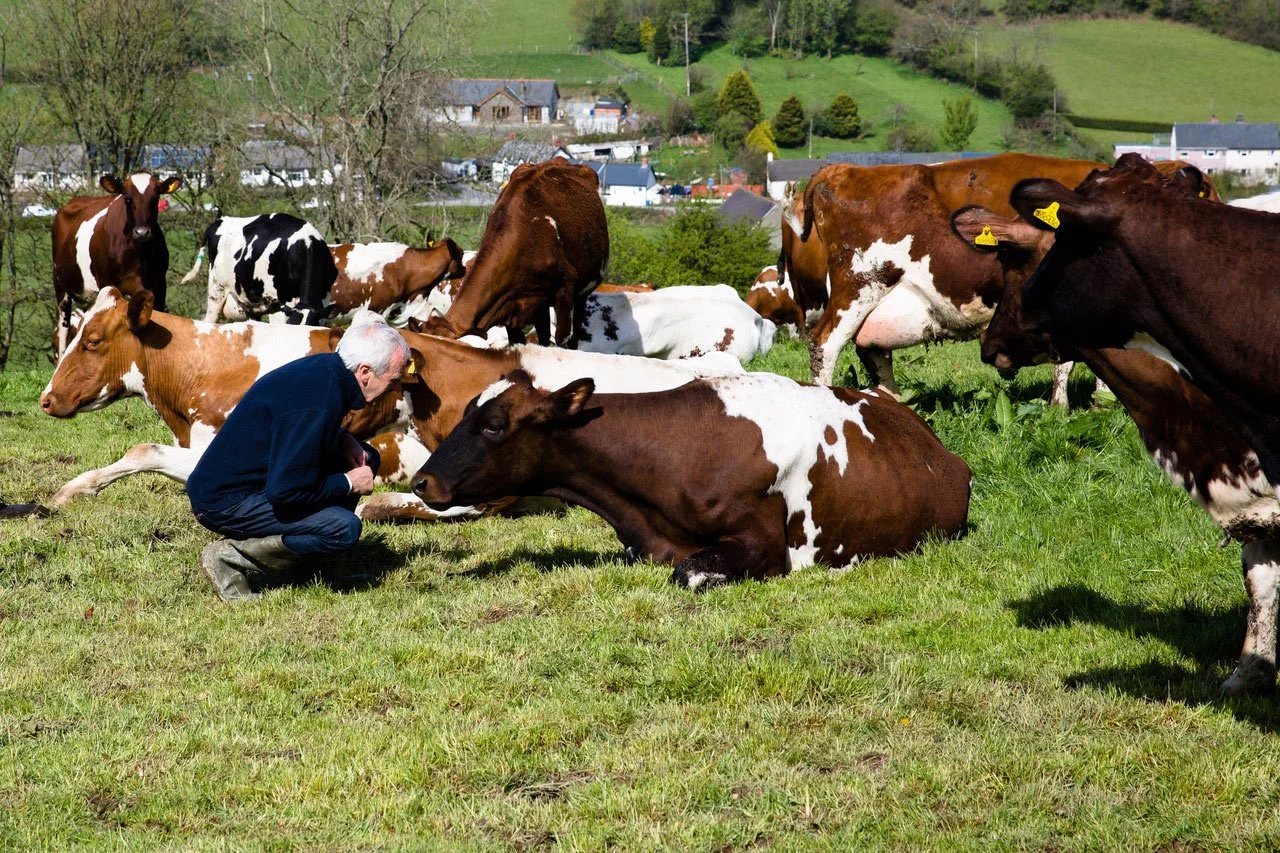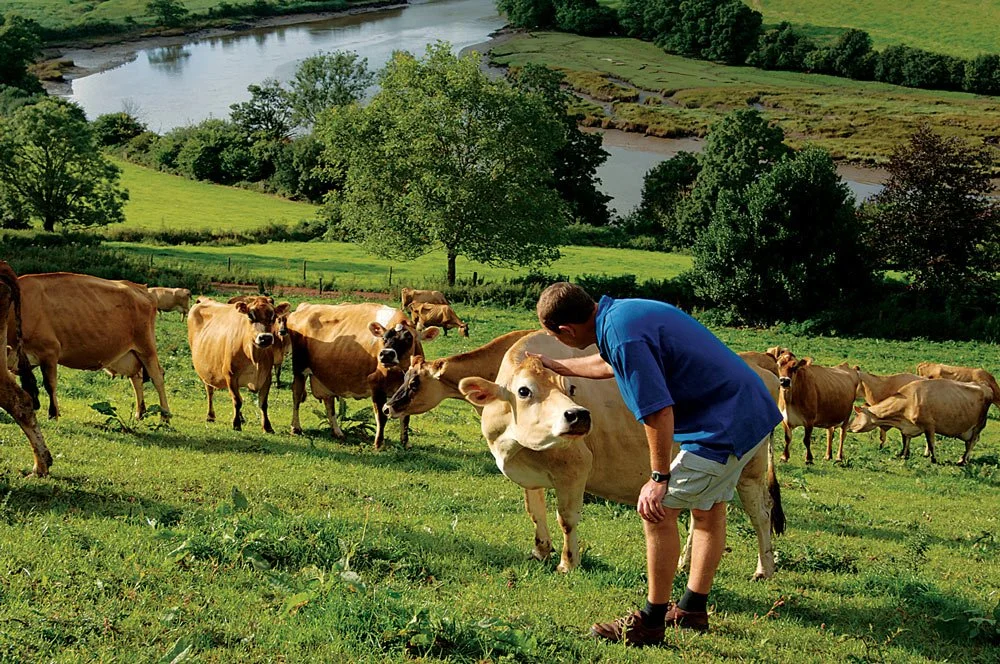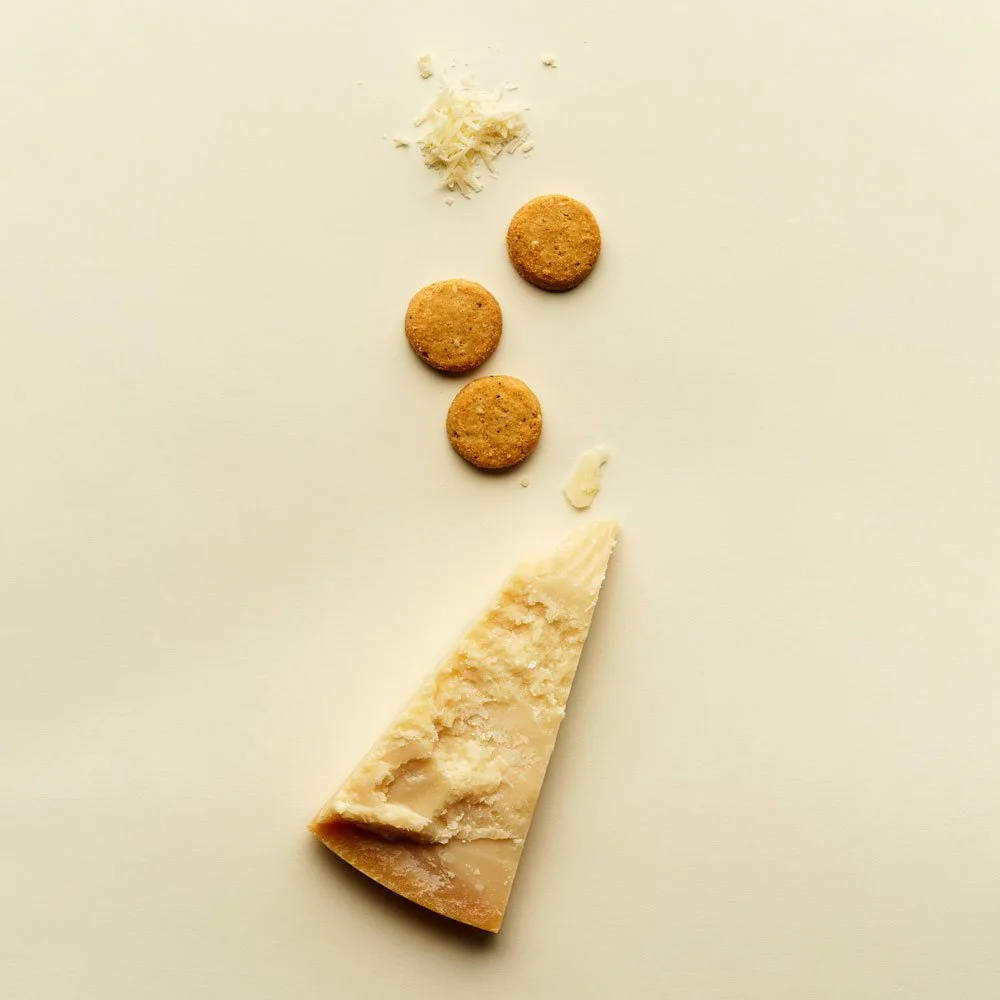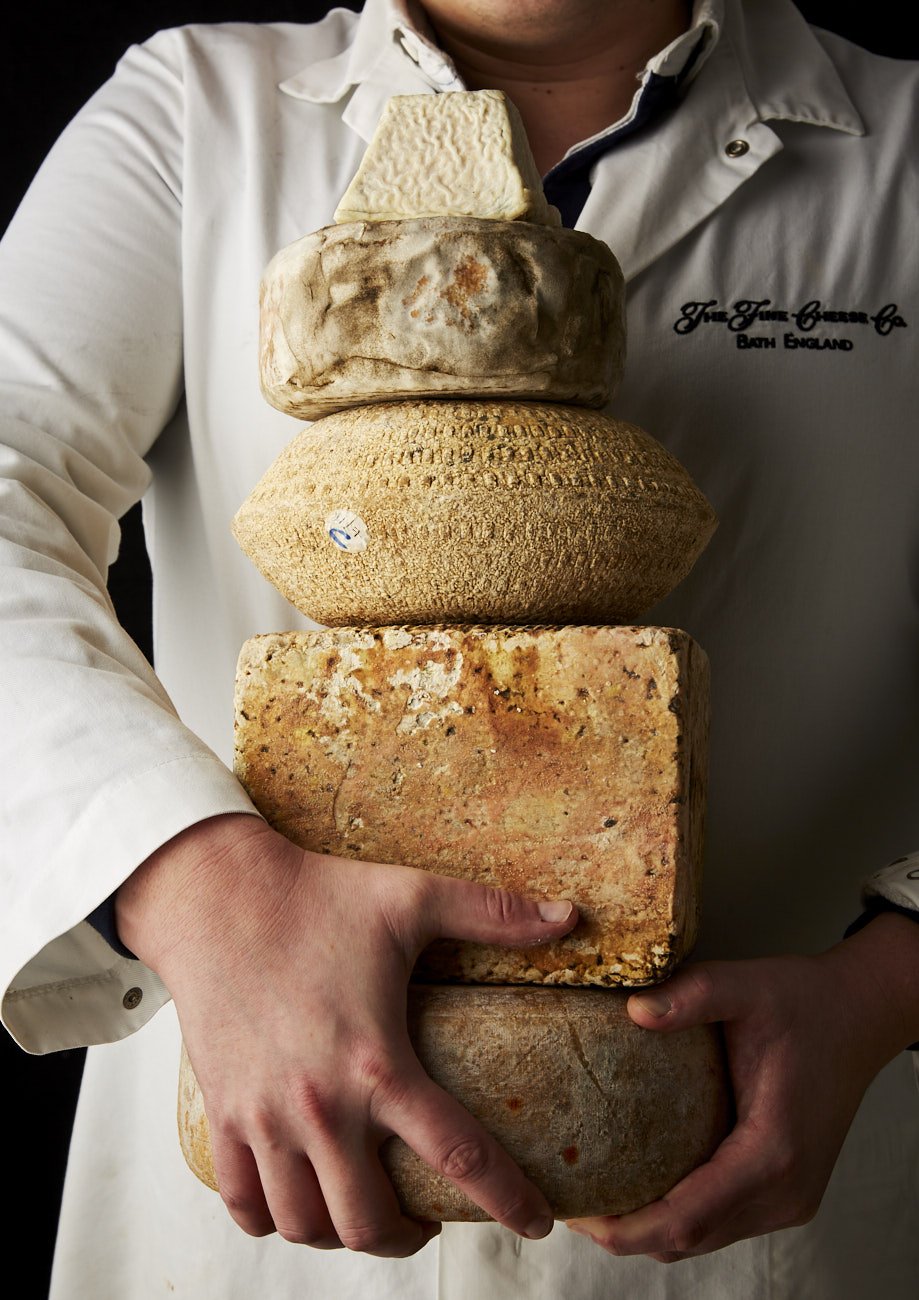
meet the cheesemakers
We regularly visit British cheesemakers to taste and select our cheeses. While artisan cheeses vary from season to season, we always pick the cheeses that have the characteristics we love about that particular cheese, and are the best expression of the cheesemaker's milk and art on that day. These cheeses are then set aside specifically for us and for our customers.
our relationship with british cheesemakers
We care about cheese…
and work very closely with the people who make the cheese that we sell. We have known some of them for as many as thirty years and the strength and depth of our partnership continue to grow.
-
![Bath Soft Cheese Co.]()
Bath Soft Cheese Co.
Bath Blue, Wyfe Of Bath, Bath Soft, Merry Wyfe
Nestled in the outskirts of Bath, Park Farm has been home to the Padfield family for four generations.
Cheese was made here as far back as 1914 but stopped during the middle of the century. Graham Padfield reintroduced cheese to the farm in 1993, with the discovery of a recipe found in an old book, for Bath Cheese; and so Bath Soft was born. Continuing the family tradition, Graham’s son, Hugh, is now at the helm, making a range of award-winning cheeses where once his great grandmother had made Cheddar. The Bath Soft Cheese Co. has since gone from strength to strength, with Wyfe of Bath, The Merry Wyfe and Bath Blue being added to their impressive range, and they have won many awards including Supreme Champion at the World Cheese Awards for their Bath Blue.
-
![Charles Martell & Son]()
Charles Martell & Son
Martell's Double Gloucester, Martell's Single Gloucester, Martell's Double Berkeley, Stinking Bishop, May Hill Green, Slack Ma Girdle, Hereford Hop
Charles Martell is a man passionately rooted in his home county of Gloucestershire, where he has been making cheese for 50 years. He arrived at Hunts Court Farm in 1973 with three Old Gloucester cows and a bull, at a time when the breed was near extinction, with only 68 remaining in the world. He decided the best way to save the breed was to set it to work and so began his cheesemaking journey. A man of pithy wit and laconic charm, he is an award-winning cheesemaker, an authority on Gloucestershire orchard fruits, a distiller of fine spirits and a former High Sheriff of Gloucestershire. Quite the Renaissance man!
-
![Colston Bassett Dairy]()
Colston Bassett Dairy
Colston Bassett Stilton , Colston Bassett Shropshire Blue
With over a century of Stilton cheesemaking under its belt, Colston Bassett is a shining example of the influence of tradition in producing a truly outstanding cheese. Head Cheesemaker Billy Kevan is a stickler for detail and nothing short of perfection is the goal to which he and his team aspire. Every single cheese is sampled before release to make sure it is worthy of the Colston Bassett name. While other dairies may choose to mechanize, Billy has kept his cheesemakers busy doing things the hard way, like painstakingly hand-ladling the curds, a back-wearing job that is only worth doing because of the results it yields. Anyone who has tasted Colston Bassett Stilton, with its velvety smooth paste, will thank those cheesemakers for the time they take to slowly layer the fragile curds to help create this extraordinary cheese.
-
![Cropwell Bishop]()
Cropwell Bishop Creamery
Cropwell Bishop Blue Stilton
A cornerstone of the British cheese scene, the Skailes family has been selling and making cheese for 170 years. Over the years, they have honed their craft and specialized their cheese production and are now firmly established as one of the most esteemed producers of Blue Stilton.
The current generation at the helm, Robin Skailes, is one of the last five producers of Stilton and one of only two that hand-ladle the curds. Cropwell Bishop Stilton has always been renowned for quality, but after an absence of more than 30 years, Robin re-introduced traditional hand-ladled production in 2008. It still only accounts for a small percentage of their overall production but is the only Stilton that we buy. The family discovered the recipe in the archive of their old Melton Mowbray North Street Creamery which closed in 1986 and were delighted to bring it back after so long.
The practice of hand-ladling dates back to the 18th century when Stilton was first made. We believe it is crucial to create a richly creamy texture and that the extra time and effort that it takes to make the Stilton in this time-honored way is well worth it.
-
![Leicestershire Handmade Co.]()
Leicestershire Handmade Co.
Sparkenhoe Red Leicester, Sparkenhoe Blue
David, Jo and Will Clarke are dairy farmers whose family has been working their land for generations and they take their responsibility as custodians of the land deeply seriously. Long before regenerative agriculture was the buzz phrase of the day, they were paying close attention to the health of their soils and the diversity of their pastures.
Husband and wife team, David and Jo, decided to bring cheesemaking back to the farm in 2005. They discovered that Red Leicester had been made there from 1745 until 1875. Initially wary of making the cheese—as all that remained at the time was factory-made cheeses that bore little resemblance to the great farmhouse cheeses of the past—their enthusiasm and determination soon overcame their initial concern, and their raw milk Red Leicester is now an essential component of any great British cheese counter.
Their son, Will, joined the team in 2017 and took on the challenge of making a raw milk blue cheese, continuing the family tradition of recreating the great, farmhouse cheeses of the past.
-
![Ford Farm]()
Ford Farm
West Country Farmhouse Wookey Hole Cave-Aged Cheddar, Wookey Hole Cave Aged Goat Cheddar
This is the only Cheddar lucky enough to call the famous Wookey Hole Caves its home. Made in Dorset near the rugged World Heritage Coastline, it is then moved to the caves to benefit from their unique atmosphere.
-
![J.A. & E. Montgomery]()
J.A. & E. Montgomery
Montgomery’s Cheddar
Affectionately known as the ‘King of Cheddar’, Jamie Montgomery is widely seen as the closest thing to royalty you will find in English cheesemaking circles. His cheese has a mighty reputation both at home and abroad, and this is surely due to the recipe—perfected over three generations—and the quality of the milk. Jamie's grandfather, Sir Archibald Langman, bought the estate back in 1911, and Jamie’s mother, Elizabeth Montgomery, took over the cheesemaking in the 1960s. Jamie’s success lies in his absolute commitment to making Cheddar as his mother made it before him. He abhors modern starter cultures, which bring extra sweetness to the finished cheese, and celebrates the strains of starters that were saved from extinction by microbiologist Ray Osborne and the Barber family in the 1980s.
-
![Lyburn Farmhouse Cheese]()
Lyburn Farmhouse Cheese
Old Winchester, Stoney Cross
Mike and Judy Smales farm on the edge of the New Forest National Park, an area more famous for its ancient woodlands and free roaming ponies, than for its cheese, but here they have created a range of cheeses, all based on one winning recipe. Mike and Judy wash the curds of all of their cheeses, and this is what gives them their gentle sweetness, as an amount of lactic acid is removed with the whey. Their most famous cheese, Old Winchester, is a modern British classic, which has featured on the menus of many Michelin-star chefs.
-
![Keen's Cheddar]()
Keen's Cheddar
Keen’s Cheddar
Cheddar has been made by the Keen family at Moorhayes Farm in Wincanton, Somerset since Great Aunt Jane made her first cheese in 1899.
-
![Westcombe Cheddar]()
Westcombe Dairy
Westcombe Cheddar, Westcombe Smoked Cheddar, Duckett’s Caerphilly
Cheese has been made at Westcombe for over 100 years and the dairy boasts a fine history of both tradition and innovation when it comes to Cheddar making. The current owners, father and son Richard and Tom Calver are no strangers to either. Tom is a whirlwind of energy and is constantly seeking new ways to improve their cheese. While he has respect for the legacy of previous Cheddar makers, he takes nothing at face value and delves deep into each part of the process to understand how best to serve flavor. Whether it be the health of the soil on which they farm, the diversity of the pasture on which the cows graze, or the conditions in which the cheeses mature (he built a vast cellar into the side of the hill, cooled by local spring water, to mature his Cheddars) no detail is left unconsidered.
-
![Trethowan Brothers]()
Trethowan Brothers
Pitchfork Cheddar, Gorwydd Caerphilly
In 2014, cheesemakers Todd and Maugan Trethowan decided to move to Somerset. Their choice was driven by wanting to find the best milk that they could, and they were so impressed by the quality of the milk from Puxton Farm that they decided to move their business, and families there from Wales in pursuit of perfection. The herd at Puxton Farm is a mix of reared pedigree Holstein and Jersey cows. It is unusual to find Jersey milk used in a Cheddar, and it could be the extra richness of the Jersey milk that sets Pitchfork apart from the other artisan Somerset Cheddars.
-
![St. Andrew's Farmhouse Cheese]()
St. Andrew's Farmhouse Cheese
St. Andrew’s Farmhouse Cheddar, Anster
Jane and her husband Robert run the family farm in the East Nuek of Fife, where the Stewarts have been farming since the 1930s. Proud custodians of the land, Jane and Robert are passionate farmers. They breed their Holstein Friesian dairy herd and grow the wheat and barley that contribute to the cows’ feed. Although the family has been farming here for nearly 70 years, cheesemaking only began about 10 years ago. Having always loved eating cheese, Jane decided that she would learn how to make it, and in the time-honored way. So, she uses only raw milk, pint pot starters, animal rennet, an old peg mill that breaks ups the curds, and traditional cast iron presses that give a characteristic final texture to the cheese.
-
![Quicke's Traditional]()
Quicke's Traditional
Quicke’s Extra-Mature Clothbound Cheddar 18-21 Months, Quicke’s Vintage Clothbound Cheddar 24 Months, Quicke’s Goat Clothbound
The Quicke family has been farming in Newton St Cyres for over 450 years. Current custodians of the land, Mary and her daughter Jane, continue to make outstanding cheeses of international reputation.
-
![Holden Farm Dairy]()
Holden Farm Dairy
Hafod Welsh Cheddar
Patrick and Rebecca Holden’s farm can be found, if you are intrepid enough to try, on a remote West Welsh hillside. As founder of the Sustainable Food Trust, which counts King Charles III as one of its patrons, Patrick works tirelessly to promote the adoption of sustainable food and farming systems that nourish the health of both people and planet. Meanwhile Rebecca is wedded to the farm and to her dairy cows. You will not meet a more dedicated, empathetic, and compassionate herdswoman. As part of the farming system, newborn calves are kept, either with their mother or a foster cow, for the first three months of their lives. The Holdens are both leaders and friends to their cows and know each one by name, as well as by their foibles, idiosyncrasies, and strengths.
-
![Sharpham Dairy]()
Sharpham Dairy
Ticklemore, Sharpham Rustic, Sharpham Rustic-Chive & Garlic
Sharpham Dairy has a long history going back to the great revival of British artisan cheesemaking which began in the 1970s. Unlike other dairies, which were looking to recreate long-lost traditions, Sharpham cast its net wider for inspiration and created a unique range of cheeses made from Jersey cows’, goats’, and sheep’s milk. Sharpham Dairy was originally set up by Maurice Ash, who was an early environmentalist and campaigner. His legacy is now in the safe hands of Greg and Nicky Parsons, who share the founder’s principles and ensured that Sharpham became the UK’s first dairy cheesemaker to be a certified B Corporation.
-
![Caws Cenarth]()
Caws Cenarth
Thelma’s Original Caerffili, Golden Cenarth, Pearl Wen
Carwyn Adams' family farm in Carmarthenshire, South West Wales, draws on a family tradition of cheesemaking going back six generations.
Carwyn’s mother, Thelma, began making cheese in 1984, when milk quotas jeopardised the future of the farm that she and her husband, Gwynfor, ran together. Thelma started on a small scale, making the same Caerffili that her mother and grandmothers had made before her : a true Caerffili, moist and crumbly in texture and bright and fresh in flavor. Her skill was soon noticed and she quickly established a reputation as the reviver of traditional Caerffili, helping to start a renaissance in Welsh cheesemaking.
-
![Lynher Dairies]()
Lynher Dairies
Cornish Yarg, Wild Garlic Yarg, Stithians
Run by Catherine Mead, Lynher Dairies is truly rooted in the Cornish countryside. The cheeses are made from Cornish milk, and the nettles and wild garlic are picked by hand from the local woods. Only whole intact leaves make the grade, and the pickers have strict instructions to make sure that no one area is over-foraged. After all, Catherine knows that the task will begin again next year.
Our Products
-
![FLAVORED CRACKERS]()
FLAVORED CRACKERS
Intentionally designed to make enjoying cheese a completely new adventure, our crackers are subtly flavored, so that the flavor of the cheese is never overwhelmed.
-
![HERITAGE RANGE]()
HERITAGE RANGE
Britain’s historic crackers: reborn, refined and re-imagined. Stylish and all-butter, each of these crackers serves as a deeply satisfying partner to any cheese.
-
![TOAST FOR CHEESE®]()
TOAST FOR CHEESE®
Thin, light, and crisp, and made with buttermilk, extra-virgin olive oil and natural ingredients—including up to 55% fruits, nuts and seeds, they have changed the way we eat cheese forever.
-
![BUTTERCRUMB BUTTONS]()
BUTTERCRUMB BUTTONS
French sophistication, Italian style, and Swiss ingenuity meet in these all-butter, crumbly buttons made with plenty of real cheese.
-
![MILLER'S RANGE]()
MILLER'S RANGE
Miller’s Toast®, Miller’s Organic® & Miller’s Gluten-Free® are all made with the goodness of the miller’s table.

